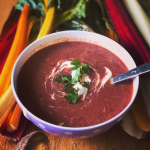Pickling and fermenting could be the answer to your store cupboard prayers, if certain foods become short in the winter months, or a virus such as COVID-19 prevents us from getting our regular stock.
You can make delicious pickles to accompany a cold feast of cheese and meats, with some lovely warm bread. In terms of fermentation, there is a huge health factor that makes fermented food an ideal addition to your diet. With the meteoric rise in popularity, fermented foods such as kimchi, kombucha, kefir and a multitude of other probiotic additions to improve your gut health, appear on supermarket shelves with abundance. Many people do not realise that sauerkraut, for instance, is one of the ‘in vogue’ foods, with sales increasing at least ten-fold over the past year.
So rather than wasting the glut of vegetables you may have in autumn/winter, make use of them to create some healthy foods! Even small children (such as my grandson) love pickles, particularly the combination of sweet, sour and salty elements — they are not so keen on the bitter! Most children these days also like aromatics and spices, so introduce some to your pickling.
To be fair, the first time anyone tries pickled or fermented vegetables, the reaction is often a shudder, or a grimace. However, the second time and onwards usually produces a miraculous result, and then, they just cannot get enough to wolf down!
Fermentation is more of an acquired taste and can sound quite horrific at the thought of leaving vegetables for a long period of time before eating them, so just don’t tell anyone how they are made until they have finished eating the last morsel on their plates.
 |
Find this Spicy vegan Beetroot soup recipe here! |
The main differences between pickling and fermenting are time, taste and probiotic content.
Pickling must be done using an acid, such as vinegar or acetic acid, in order to preserve the produce. Produce should be left for at least five days before consuming, but once opened, you can store in the fridge for around two months. After that, whilst edible, they lose a certain element of ‘crunch,’ which is part of the joy of eating them!
Fermentation must include a combination of acid and microbes, otherwise it simply does not work. Successful fermentation can take 3-4 weeks — you can store it in a cold cupboard, basement or garage.
You can use fruit in pickling (like a nice apple chutney) but fermented fruit is not recommended, as it can take on a strange taste.
What equipment do I need?
For pickling:
- Vacuum jars or clip top jars, with replaceable seals
- Wooden spoons — long handles are best
- Preserving pan
- Funnel with wide mouth
- Heat resistant tongs
For fermenting:
- A powerful blender or good quality sharp knives
- A pounder — you need to release the liquid from the vegetables for maximum taste
- Wide-necked containers — either glass or ceramic are best
- Weights — you must keep the vegetables below the level of the liquid.
- You can also purchase ‘kits’ for specific recipes such as sauerkraut, kimchi, kombucha and others, if you just want to experiment before investing.
Best produce to pickle:
You can pickle most fruits and vegetables, such as:
- Cabbage, courgettes, cucumbers, onions, beetroot, apples, pears, walnuts, carrots, cauliflower stalks, green beans, aubergines, radishes, pumpkins, lemons, tangerines, aubergines, peppers, squash, watermelons — the list is almost endless!
Best produce to ferment:
- Cucumber, carrot, cabbage, beets, cauliflower, chillies, radishes
- Whilst fermented fruit has varied opinions, if you want to try it, the first go-round choice would be blueberries or strawberries. You want texture, not mush.
Fermented drinks
Fermented drinks are a great addition to a plant-based diet, as they introduce live bacteria to your gut and keep it in balance.
My top three suggestions are:
- Kombucha — a fermented mixture of green tea and sugar, with the addition of yeast as the cultivator. Do not panic about the sugar, the bulk of it is taken up by the bacteria.
- Kefir — this can be either water-based or milk based. It tastes a little like strong, natural yoghurt. Adding a little fruit, such as orange or mango to the mix, provides quite a delicious taste.
- Homemade Ginger Ale — simple to make, using fresh ginger and a ‘ginger bug’ to aid the fermentation.
How to store homemade produce
Pickles can be stored in your cupboard until they are opened. Once opened, it is best to refrigerate them.
Fermented vegetables or fruit can simply be covered with a cloth, and kept in a place where the temperature is between 8-12°C.
Do try some home pickling and fermenting. It’s good for your health and at least you know there are no hidden ‘nasties’ sometimes found in shop bought products.


Want to comment?
Sign in or Register